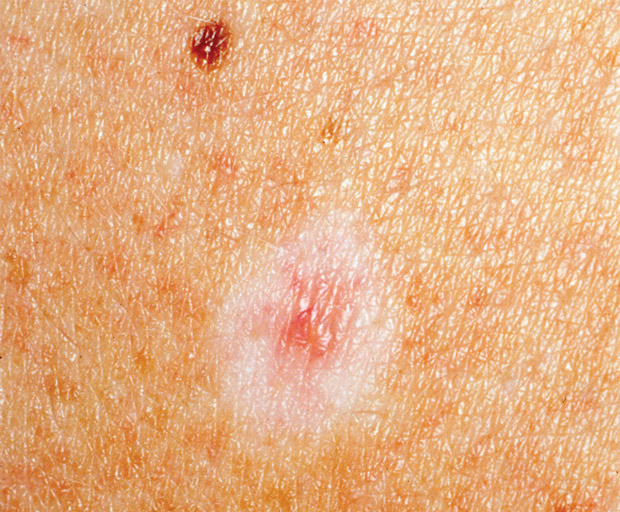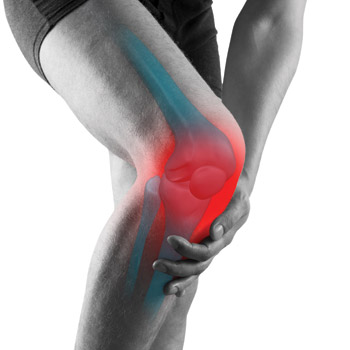Pandemic parenting as a physician
As the pandemic escalated, two physicians learned to balance increased home duties with increased workloads.
Before the COVID-19 pandemic started, David Alfandre, MD, MSPH, and Heather E. Nye, MD, PhD, contemplated their dual roles as hospitalists and parents. “We thought we had problems then,” said Dr. Nye.
They planned a talk about these issues for the Society of Hospital Medicine's annual meeting. But by the time their session on being a hospitalist and a parent was presented online in August as part of HM20 Virtual, existing challenges had grown in difficulty while new ones had appeared. Thus, Dr. Alfandre and Dr. Nye offered their thoughts on both ongoing and of-the-moment issues for physician parents.
Parenting in the pandemic
Take child care, for example. “The types of hours that people in our profession work, and weekends, it's a little bit harder to find child care,” said Dr. Nye, who is a professor of medicine at the University of California, San Francisco, and mother of a 7-year-old and a 13-year-old.
As the pandemic escalated, even the existing care options disappeared for Dr. Nye and her husband, an academic geriatrician. “Most of them closed,” she said. “We don't have family in the area and just really toggled between each other's schedules to make it work.”
Then there was the ongoing balancing act of managing family activities and work commitments. “There's those ever-important baseball games and ballet recitals and any number of school-related activities to help support your kids and your family,” said Dr. Nye. “[For] those of us who are academic, the other missions in our life often take up the wiggle room in our schedule—education, administration, research.”
The pandemic canceled many of both types of activities, but it only increased the guilt of hospitalist parents torn between the two, she said. “As an essential worker, we have to go in, and so there's a certain guilt about that,” said Dr. Nye. “When you're trying to work from home, to also attend to your kids' studies is very challenging, and we feel a lot of guilt about not doing it well or well enough, without having any definition of what ‘well enough’ actually looks like.”
Add to that concern about spreading the virus, said Dr. Alfandre, an associate professor of medicine at New York University and father of a 12-year-old and a 14-year-old. “I too felt a tremendous amount of guilt, and I know my colleagues did as well, about potentially bringing home COVID to their family … I was using the outdoor shower before I came in the house, and it still sort of weighed on me.”
On the positive side, the pandemic also brought an increase in gratitude for these parents. “It's an undulating, never-stopping pendulum between guilt and gratitude,” said Dr. Nye. There was the new gratitude they felt for some basic things—a stable job, food, safety—as well as the gratitude many hospitalists received from patients and society.
“For me, it was amazing to be sitting at our dinner table some nights, and at 7 o’clock, the horns started blaring and pots started banging,” said Dr. Alfandre, referencing New York City's well-known nightly salutes to health care workers. “For my 11-year-old daughter to say, ‘Dad, you know they're cheering for you,’ that was a tremendously proud moment for our kids to be able to see that the kind of work that we do is important and valued and respected by the community.”
Children also got a new, closer look at their parents' work, thanks to the pandemic. “I think we all started out feeling like working from home really wasn't such a bad gig. All the hospitals that had sort of resisted that in the past were finally OK with doing your nonclinical work from home. But how little I got done was a big surprise,” said Dr. Nye. “Fifty percent efficiency was on your best day with the constant interruptions—household issues, children's issues, schoolwork issues.”
Strategies to deal
As the pandemic intensified the challenges of being a parent and a hospitalist, it also increased the importance of having strategies to handle them.
Dr. Alfandre's top recommendation was to cooperate closely with your partner, particularly over division of family responsibilities. He tries to do this all the time with his wife, an academic psychiatrist. “When she has grants to do, I'm managing more of the responsibility. When I'm busy on the floors, she's able to do more at home,” he said.
The arrival of COVID-19 in New York City highlighted the value of this kind of tradeoff. His wife's research was halted just as his hospital medicine service had to deal with surging patient volume, so naturally she took the lead at home.
Under normal circumstances, they also generally divide tasks by personal interests and inclinations. “We try to gravitate towards things we don't mind doing. My wife didn't know that we had a broom until about two years into moving into our house. And that's because I don't mind sweeping,” he said. “We may argue about the things that neither one of us wants to do—mice in the basement.”
Good communication is key to making this strategy work, added Dr. Nye. “Sometimes the division of responsibility is assumed and just understood, but other times it's good to just lay it out in words and communicate needs, communicate hopes, and communicate frustrations. Just to make sure that that doesn't come up later,” she said.
Dr. Alfandre explained that openness to the other's needs and hopes is an important component of his concept of cooperation. “When I've considered looking for other jobs in other cities, my wife says, ‘Well, let's see what happens. If this is really important to you, this will really advance your career, and this is something you think is important, then let's put it on the table. We may decide that it doesn't work, but let's not decide that early on.’”
It also helps to have a boss with an openness to flexible scheduling, which is something you may not discover unless you ask. “Sit with your employer. Everything is negotiable, and that's something I found tremendously helpful,” said Dr. Alfandre. “Focus on what value you bring, and how you will not create new problems for your boss but help solve them.”
Of course, some employers will stand firm on schedules, and that's something parents should consider when choosing a job. “If you're wondering about ‘Is this a place that has reasonable accommodation for working parents?’ it's very, very important to talk to the group and ask about the culture of shift trades, willingness to do things at the last minute for their colleagues because they know they're in a bind,” said Dr. Nye.
To avoid falling into some of those last-minute binds, have a shared online family calendar, recommended Dr. Alfandre. “We put work obligations on there, we put kids' doctor's appointments on there, we put the recitals and the shows at school,” he said. “It's been a really useful strategy for us to be able to keep up to date.”
Advantages and overlap
Although the dual roles pose difficulties, they can also offer combined benefits. “What we do as parents can inform our work as physicians, and our work as physicians can inform our work as parents,” said Dr. Alfandre.
Patients aren't toddlers, of course, but some of the same issues can arise with both, the speakers noted. “For instance, when my son was little, he would knock over a cup every once in a while, and he would, as they say, cry over spilled milk,” said Dr. Alfandre. “It would be hard not to get angry or frustrated at his frustration, and you can imagine how that plays out—obviously, not very well.”
Then he noticed parallels in his interactions with patients. “We tell people how they should feel. Me telling my 2-year-old son, ‘Don't be upset about spilled milk’ is the same thing as telling a patient, ‘Don't be upset about this test that we just did’ or ‘Don't feel anxious about having this test.’”
Dr. Alfandre found a more empathetic approach to be helpful in both situations. Dr. Nye offered an additional tip. “One of the classic strategies with small children who are upset works incredibly well with patients, as well, and that is distraction,” she said. “I'm not saying ignoring somebody's concerns. I'm saying talking about something besides their illness for part of the time and reminding them of other things outside of the hospital that they desperately would prefer to be engaged with, like sports, good news items, things like that.”
In the reverse dynamic, Dr. Nye has used her experience as a physician to teach her children how fortunate they are. “My kids, who are more or less spoiled rotten, they don't have the perspective I wish they did,” she said. “I've gotten requests from my little son, ‘Can someone else take care of your patients today? Why do you have to go in?’ I try and help them understand that patients are suffering,” she said. “I feel like sharing that part of our job with our kids helps them understand that there are very big problems out there.”
But sometimes it's necessary to turn off the doctor side and just be a parent. Dr. Alfandre described the experience of having his son hospitalized at a very young age. “I acted like the doctor when I was there, for part of that time,” he said. “But there were three things that I realized over time that made that experience for me being there in the hospital with my son so difficult.”
The first was that he doesn't have pediatric expertise and so should let the experts handle the care.
“Add to it my clinical reasoning was seriously impacted by my emotions, by my fear, by my anxiety, by my exhaustion,” Dr. Alfandre said. “Three, that I denied myself the right just to be his dad. So it took me a couple of weeks, but I stopped acting like a doctor, and I focused on just being Jack's dad, and that worked for me.”
Lessons learned
Similarly, Dr. Nye has taken some lessons from the parenting difficulties she encountered early on in the pandemic. “My husband and I started out really not seeking any help out there that was offered in terms of camps for children of essential workers,” she said. “I think I would take advantage of more.”
She also would seek out more informal sources of support. “Rather than just thinking we were going to power through this, the two of us, and feeling like everyone else had enough troubles on their own, I think I would have formed maybe a small community and helped one another.”
Dr. Nye's other realization was that she should have turned off television news about the pandemic. “The news is scary. And the kids soak it up. I would have done that differently—just really made a moratorium on watching the news,” she said.
Instead, spend time engaging with other people, she suggested. “It's important that we identify connective supports, whether that's from your institution, Zoom meetings with other parents, your neighbors, colleagues,” Dr. Nye said.
Dr. Alfandre agreed. “When we support one another, when we share our experiences, when we collaborate, when we connect with colleagues, when we connect with loved ones, when we connect with our families, we're stronger for it. We're more resilient. We're happier,” he concluded, before adding a pandemic caveat. “I didn't say happy.”





